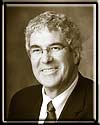
 I voted for Mike McGrath for chief justice of Montana’s supreme court. It was not a hard decision. But I’m beginning to wonder whether he enjoys politics too much to be suited for a position in which one’s credibility and perceived impartiality require avoiding involvement in matters that provide, to the average citizen, even the appearance of a conflict of interest or a lack of good judgment.
I voted for Mike McGrath for chief justice of Montana’s supreme court. It was not a hard decision. But I’m beginning to wonder whether he enjoys politics too much to be suited for a position in which one’s credibility and perceived impartiality require avoiding involvement in matters that provide, to the average citizen, even the appearance of a conflict of interest or a lack of good judgment.
In my opinion, Chief Justice McGrath breached the bounds of propriety yesterday when he appeared before the Montana Legislature’s Law and Justice Committee to propose using receipts from taxes on booze to fund programs for treating and preventing alcohol abuse. As reported by the AP’s Matt Gouras, in a story appearing in the Flathead Beacon:
Mike McGrath, former state attorney general, introduced the ballot measure to the Law and Justice legislative committee and said the plan would take $5 million a year to pay for more alcohol and drug courts.
Lawmakers were both receptive to the idea and skeptical of a plan that would take millions from beleaguered state coffers.
The Law and Justice Committee also started drafting a blueprint for legislation it will take to the 2011 Legislature. Early ideas would stiffen penalties and give the justice system more tools to offer drug and alcohol treatment.
I’ll comment on some of these ideas in moment. First, however, a comment of the propriety of McGrath’s appearance before the legislative committee.
His job requires responding to legislative inquires on factual matters concerning Montana’s courts and statutes. Doing that appears to pose no ethical problem as long as he remains silent on matters before the court. He can certainly observe that more treatment and prevention programs are needed. And if a legislator asks him, “How much money do you believe that we need to fund these programs,” we expect him to provide his best estimate of the cost of the program.
But in my opinion, he has no business presenting the legislature with a ballot measure (which could be either a legislatively mandated referendum on the disposition of the booze tax, or a citizen’s initiative to put the issue on the ballot). In proposing where to get the money, and how to get it allocated, he stopped being a source of expert information and started being a political partisan on an issue that might well come before his court.
That, unfortunately, strikes me as being in character for McGrath. While Montana’s attorney general, he served on the board of the Montana Meth Project (a project of dubious merit), a decision that undercut the credibility of his office’s reports on drug use. I question neither his good intentions or personal integrity, but I do question whether his enthusiasm for involvement in social causes is consistent with his duty as a justice of the MT Supreme Court to be a disinterested party to these causes so that he can administer justice fairly and impartially. And I question his judgement. I find myself wondering whether he’s the right man for the job.
My immediate inclination upon learning he was dabbling in politics was to start drafting a demand that he issue a mea culpa or resign. And at some point I might. For the moment, however, I’ll cut him some slack and hope that he comes to recognize that the chief justice of the state’s supreme court is obliged not to dabble in politics while serving on the bench.
I support more treatment programs for drunken and drinking drivers. But neither more such program nor more draconian laws and penalties addresses the fundamental problem: the low probability that a driver who has been drinking will be caught. The vast majority of tipplers who share the driver’s seat with Demon Rum arrive home without incident. Drivers who drink are more likely to have an accident than drivers who do not drink, and the more that drivers drink, the higher the probability that their impaired judgment and reflexes will lead to a mishap — but the overwhelming majority of drivers with ethanol in their veins will arrive at their destination without incident. Deep down in their rum soaked souls, most drinkers who get behind the wheel do so secure in the knowledge that although what they’re doing scoffs at the law, their chances of being stopped and cited for driving while intoxicated are miniscule.
That’s the fundamental problem: “Hell, it’s a big state with a little highway patrol. Ain't real likely I'll be caught. And if I do, so what? Ain’t no worse than a speeding ticket. And any good attorney can get the charges thrown out. Drink up. Let’s roll.”